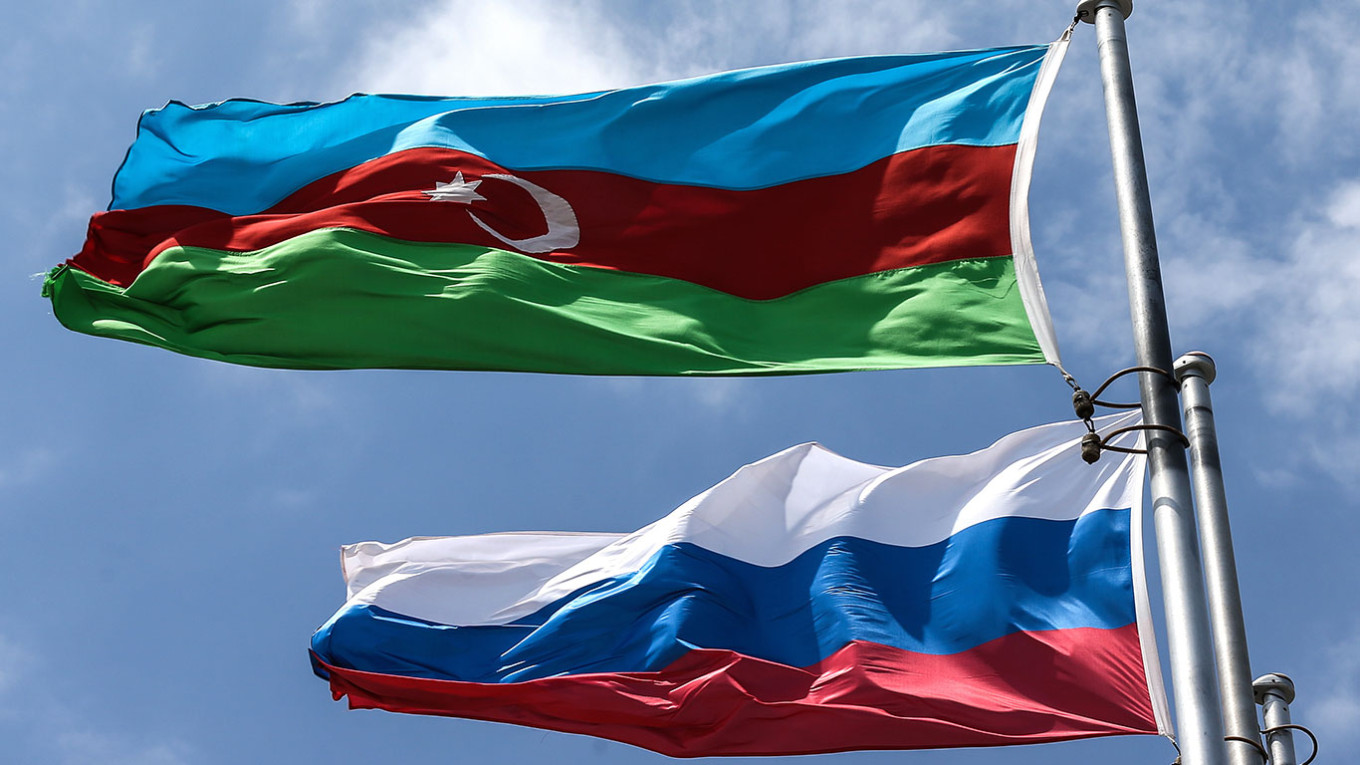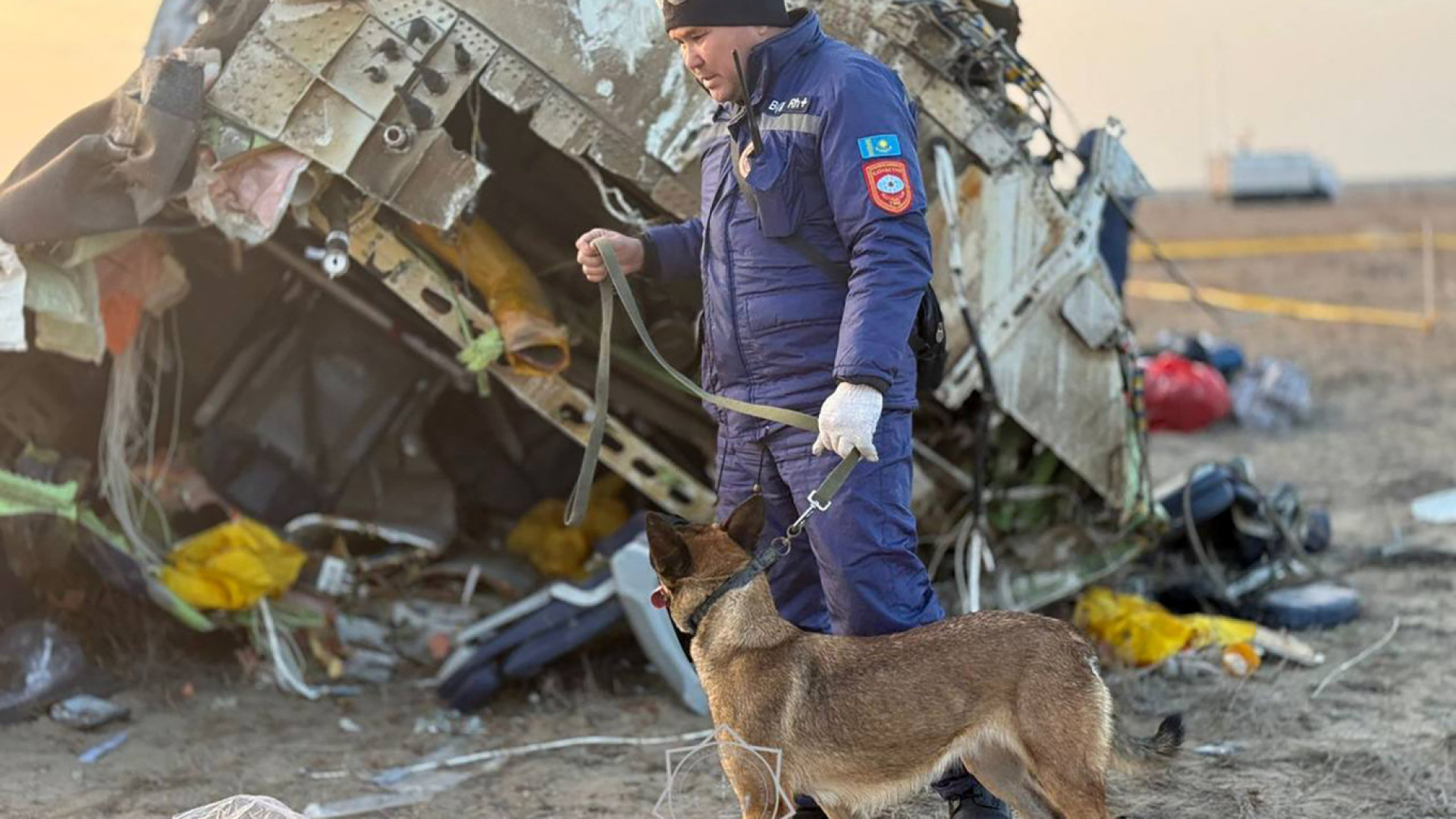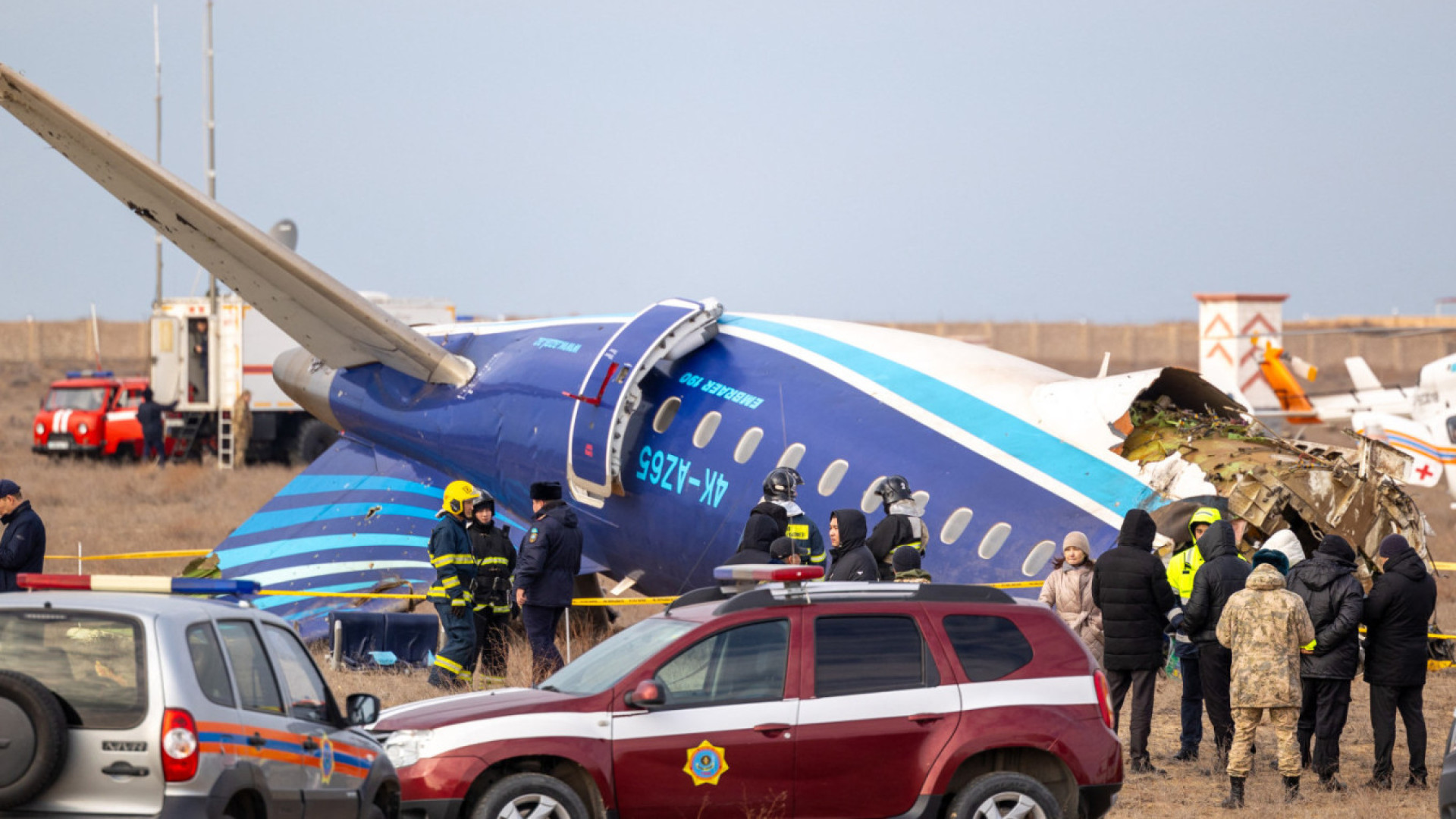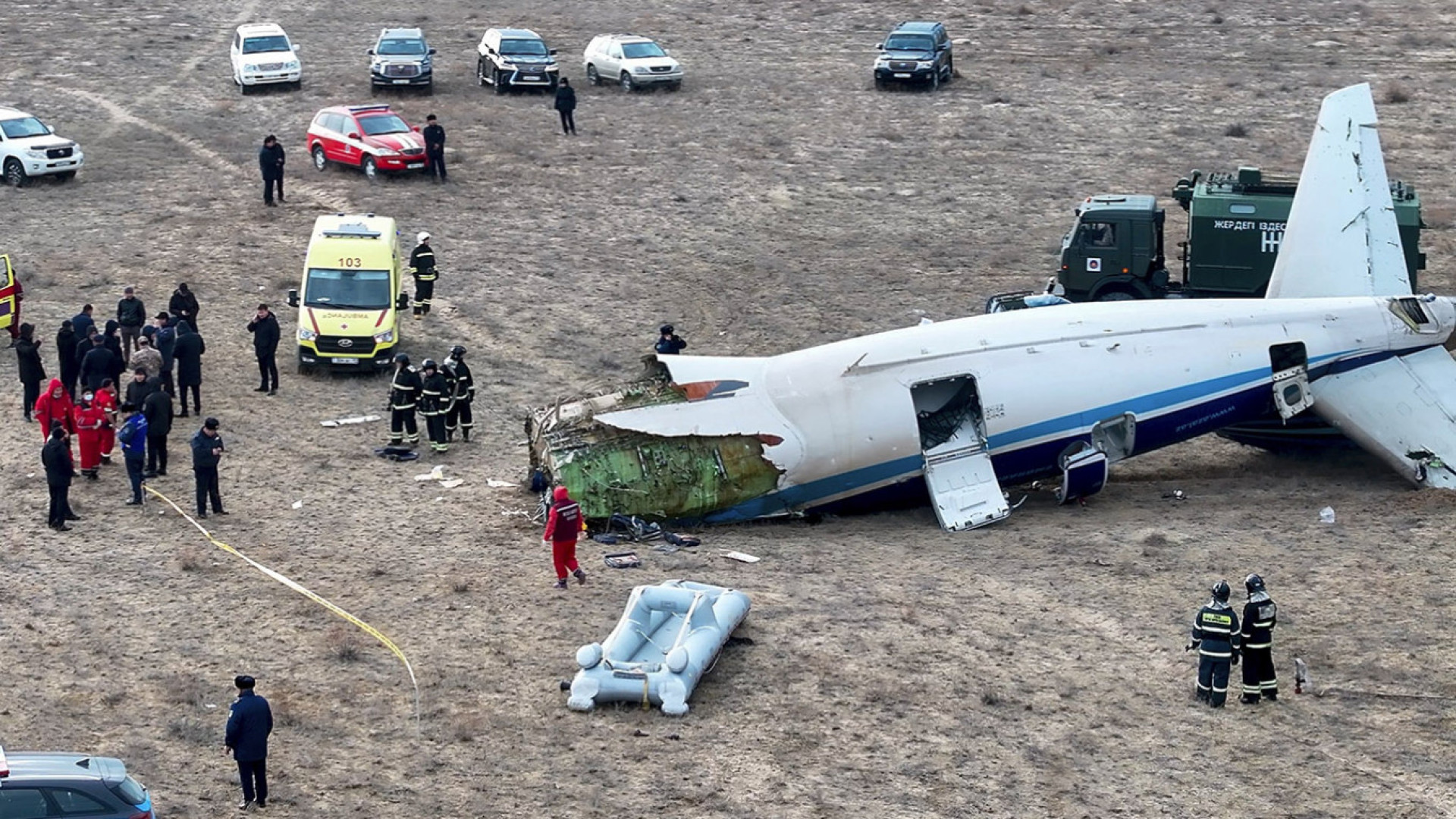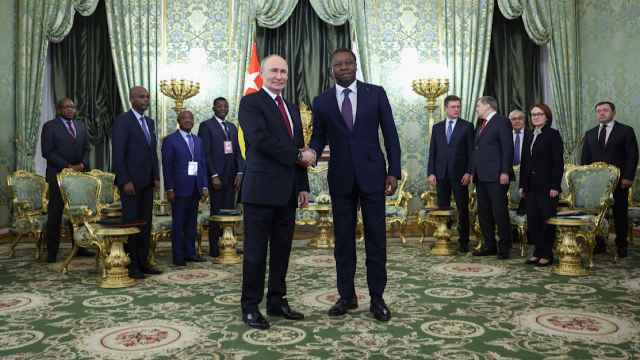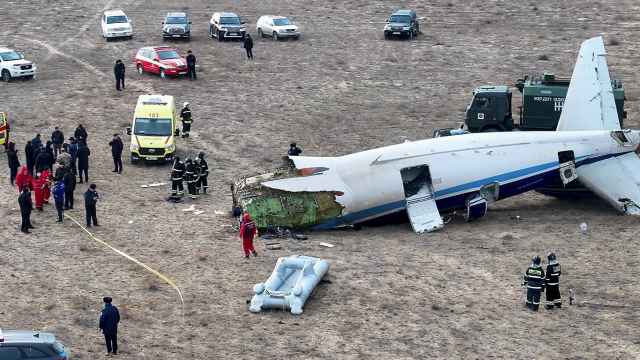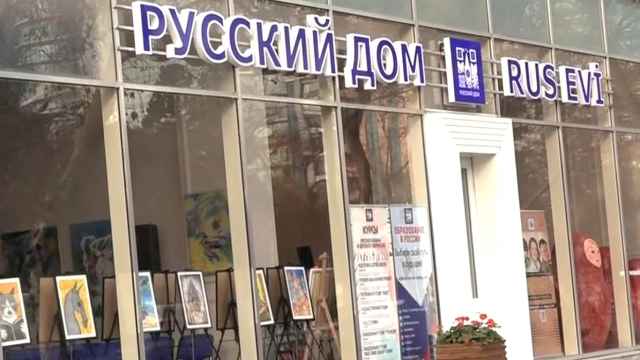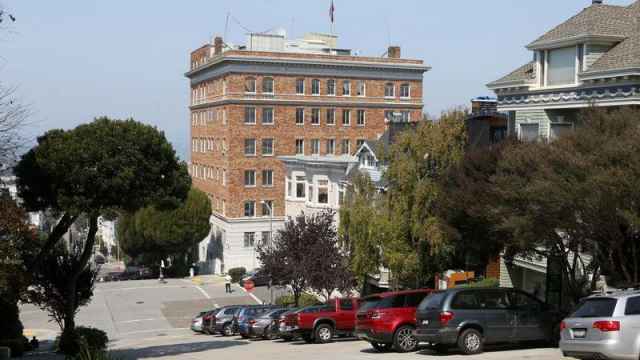Relations between Russia and Azerbaijan hit an all-time low this week, as simmering tensions over the death of two Azerbaijani men amid mass arrests in Russia have rapidly escalated into a full-blown diplomatic crisis.
The Moscow Times traces how relations between Russia and Azerbaijan unraveled, and why they may get worse before they get better.
Azerbaijani Airlines crash
Tensions between the two countries first flared in late December, when an Azerbaijan Airlines passenger jet crashed while attempting to land in the North Caucasus city of Grozny. The flight, which had departed from Baku, went down in western Kazakhstan, killing 38 people and injuring 29 others.
A preliminary report from Kazakh authorities appeared to support claims that the aircraft had come under fire from Russian air defense systems in Grozny, which was under Ukrainian drone attack at the time. Photos and video from the crash site showed the rear of the plane riddled with holes.
Russian President Vladimir Putin issued a rare apology in a call with Azerbaijani President Ilham Aliyev but stopped short of accepting responsibility. The incident reportedly influenced Aliyev’s decision to skip Russia’s May 9 Victory Day celebrations.
In the weeks following the crash, Baku took a series of steps seen as retaliation, including closing a Moscow-funded cultural center, barring Russian officials from entering the country over “offensive” remarks and forcing Kremlin-funded media to shut their offices.
Deadly arrests in Yekaterinburg
The diplomatic rupture deepened on June 27 when Russian law enforcement authorities in the Ural Mountains city of Yekaterinburg arrested dozens of people in connection with the unsolved murders of Azerbaijani businessmen dating back to the early 2000s.
Two Azerbaijani men, identified as brothers Ziyaddin Safarov, 55, and Huseyn Safarov, 60, died during the arrests. Authorities said one died of a heart attack, while the other’s death remained under investigation. But autopsies conducted after their bodies were sent to Baku concluded both had died from severe blood loss and shock caused by extensive physical trauma.
Azerbaijan’s Prosecutor General’s Office launched a criminal investigation into what it described as the “cruel and deliberate murder” of the two men, accusing Russian police of subjecting them to “torture and serious bodily injuries” during their arrest and time in custody.
Meanwhile, Russian investigators said six ethnic Azerbaijani men with Russian citizenship were charged and placed in pre-trial detention after the arrests in Yekaterinburg. The men, some of whom appeared in court with visible injuries, were accused of murder and attempted murder.
According to Kommersant, authorities suspect the men are part of an organized crime group behind the 2001 killing of businessman Yunus Pashayev, the 2010 attempted murder of businessman Fehruz Shirinov and the 2011 killing of vegetable warehouse owner Ikram Hajiyev.
Authorities in Baku respond
Azerbaijan’s Culture Ministry announced on June 29 that it would cancel all Russian-linked cultural events, citing what it called the “extrajudicial killings” of its citizens in Russia. The South Caucasus country’s parliament also backed out of a planned bilateral meeting with lawmakers in Moscow. So, too, was a visit by Russian Deputy Prime Minister Alexei Overchuk to Azerbaijan abruptly called off.
The following day, law enforcement authorities in Baku raided the offices of Sputnik Azerbaijan, the local affiliate of the Russian state-funded news network. Although Sputnik officially suspended operations in the South Caucasus country earlier this year after a new media law restricted foreign ownership, it continued publishing content online.
Azerbaijan’s Foreign Ministry claimed the news outlet “continues to operate through illegal financing.”
Several employees were arrested, including Sputnik Azerbaijan editor-in-chief Igor Kartavykh and deputy editor Evgeny Belousov. Unconfirmed local media reports alleged the two had ties to Russia’s FSB security service.
Russia responded by summoning Azerbaijan’s ambassador in Moscow, accusing Baku of “deliberate actions aimed at dismantling bilateral relations” and “interference in Russia’s internal affairs.”
Azerbaijan busts alleged Russian criminal group
Azerbaijani police on July 1 said they arrested at least eight Russian nationals accused of being members of “organized criminal groups” that engaged in cyber crimes and drug trafficking. Images from court proceedings showed some of the Russian detainees with visible injuries.
The next day, the Kremlin said it had “noticed all the details” in videos showing the arrests and vowed to protect Russian citizens “through diplomatic channels and... all the means available to us.”
Russian media identified the group as including IT specialists, businesspeople, and others whose reasons for being in Azerbaijan were not immediately clear, though authorities have not confirmed this information. Russia’s Embassy in Baku later accused Azerbaijan’s Foreign Ministry of ignoring its requests to grant consular access to the arrested Russians.
On the same day that authorities in Baku arrested the group of Russians, law enforcement agents in Yekaterinburg violently arrested the head of a local Azerbaijani diaspora group, with a video on social media showing security service personnel smashing the windows of his SUV and dragging him from the vehicle.
Local media reported that the diaspora leader, Shakhin Shykhlinsky, was questioned as a witness in the ongoing cold case murder investigation and subsequently released from police custody later that night.
A Message from The Moscow Times:
Dear readers,
We are facing unprecedented challenges. Russia's Prosecutor General's Office has designated The Moscow Times as an "undesirable" organization, criminalizing our work and putting our staff at risk of prosecution. This follows our earlier unjust labeling as a "foreign agent."
These actions are direct attempts to silence independent journalism in Russia. The authorities claim our work "discredits the decisions of the Russian leadership." We see things differently: we strive to provide accurate, unbiased reporting on Russia.
We, the journalists of The Moscow Times, refuse to be silenced. But to continue our work, we need your help.
Your support, no matter how small, makes a world of difference. If you can, please support us monthly starting from just $2. It's quick to set up, and every contribution makes a significant impact.
By supporting The Moscow Times, you're defending open, independent journalism in the face of repression. Thank you for standing with us.
Remind me later.


